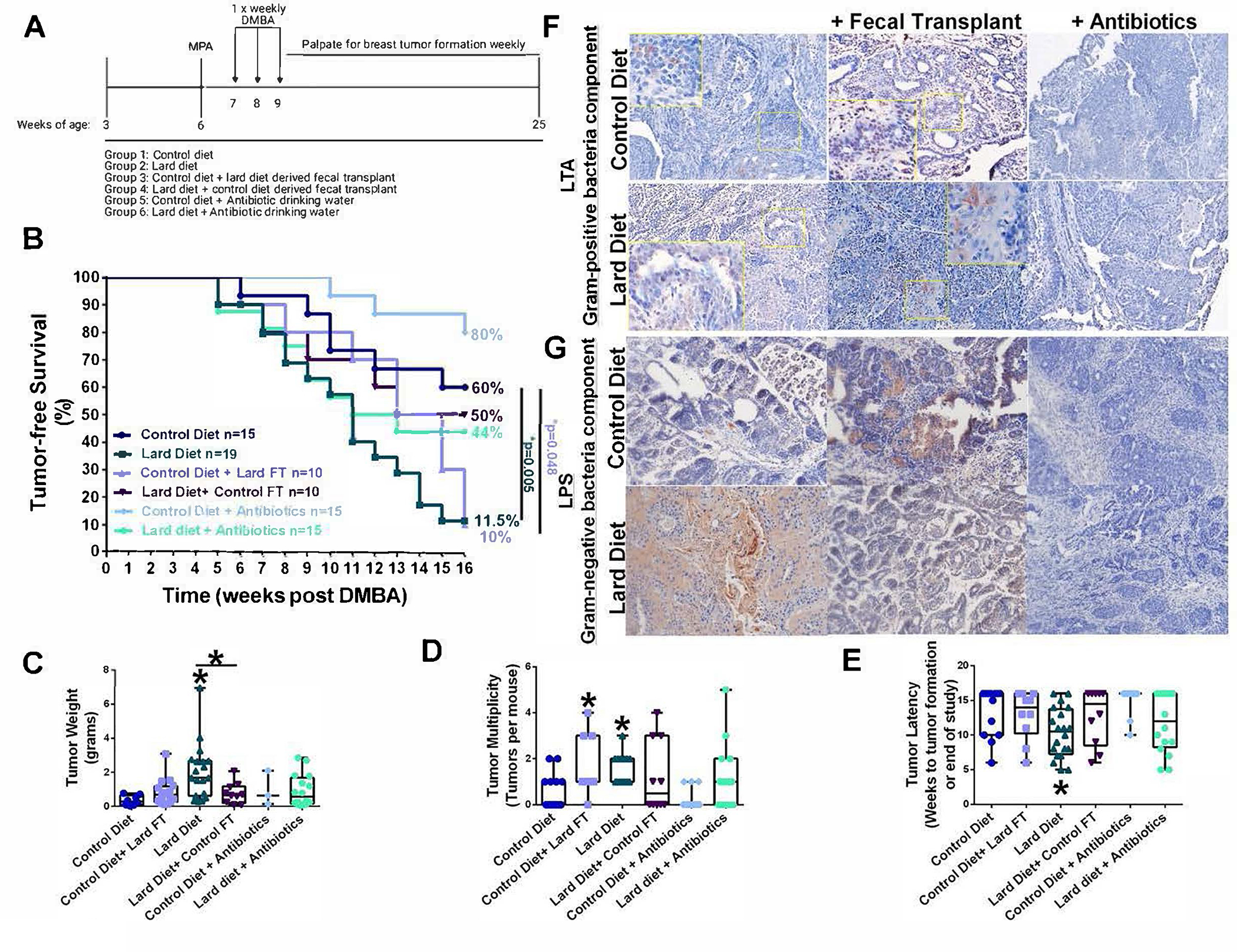Figure 1.

Modulating microbiota regulates dietary-influenced breast cancer risk. A. MPA-DMBA mammary carcinogenesis model schematic in mice. B. Tumor-free survival in mice fed a control or lard diet. A subset of mice on each diet was given broad-spectrum antibiotics administered in their drinking water. Another subset of mice on each diet was given weekly fecal transplant for the study duration. Groups are as follows: Control diet-fed mice, lard diet-fed mice, control diet-fed mice given a lard diet-derived fecal transplant, lard diet-fed mice given a control diet-derived fecal transplant, control diet-fed mice given antibiotics, and lard diet-fed mice given antibiotics. Breast tumors were induced by MPA-DMBA administration, and mice were palpated weekly for breast tumor formation. Comparison of survival curves was performed by Log-rank (Mantel-Cox) test. C. Tumor weight at the end of the study. n=3–20. *p<0.05. D. Tumor multiplicity at the end of the study n=10–19. *p<0.05. E. Tumor latency. n=10–19. *p<0.05. F. Breast tumor sections were stained with an antibody against LTA to identify gram-positive bacteria. G. Breast tumor sections were stained with an antibody against LPS to identify gram-negative bacteria.
